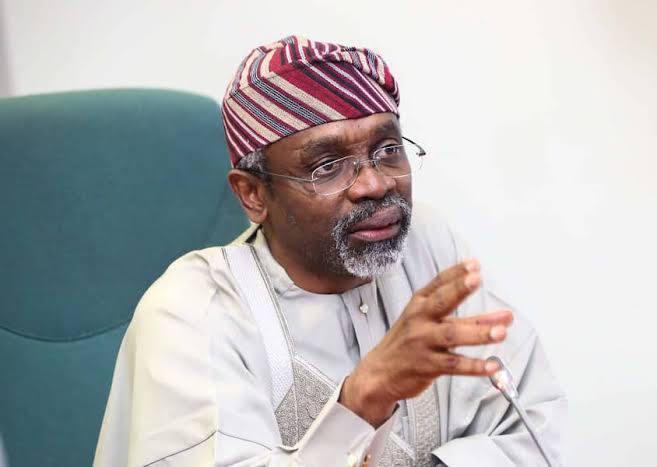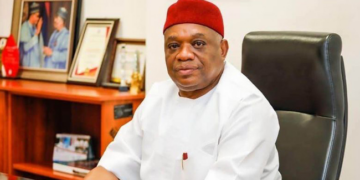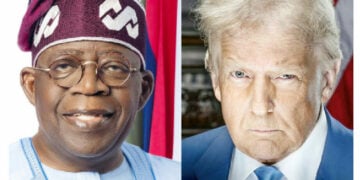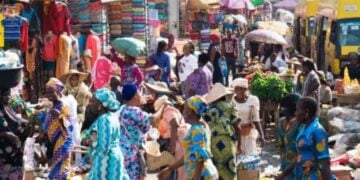The House of Representatives has asked the Central Bank of Nigeria (CBN) to halt the implementation of the new cash withdrawal policy slated for January 9, 2023, pending compliance with the provisions of the Act establishing the bank.
The House also summoned CBN Governor Godwin Emiefele in accordance with the provisions of the Central Bank Act to brief the Chamber on several policies of the bank in recent times.
Members of the Green Chambers who took turns to condemn the new cash withdrawal policy opined that it would grossly affect small businesses and the economy since most rural communities don’t have access to banks.
The House, however, directed the CBN Governor to appear before the House on Thursday, December 15, 2022, to brief the House on why the policy should be allowed to stand.
The member representing Buji/Birnin Kudu federal constituency Jigawa State, Hon Aliyu Magaji Da’u had in a matter of urgent public importance observed that the new policy by the CBN, which limits daily cash withdrawal to N20,000 daily should not be allowed to stand as it will adversely affect the Nigerian people, especially those running small-scale businesses.
Da’u said while the country was trying to come to terms with the decision to redesign the currency, the CBN was coming up with yet another policy that will adversely affect the masses without proper advocacy.
The minority leader, Hon Ndudi Elumelu in his intervention said the policy should be supported because there has been too much cash in circulation.
“Part of the problem is enforcing kidnapping and all vices that are very inimical today, if you go to the communities today, they will ask them to contribute money because there is cash everywhere.
“If you want to stop banditry, make it impossible for them to have cash, there should not be any cash available for them,” he said.
Elumelu added that the parliament should commend the CBN for waking up to their responsibilities.
“Secondly we passed the law on this floor, it is our law, the fact that the CBN has been sleeping all these while and never went into the law passed and followed it to the latter does not mean that it was not there. They are only now waking up to implement the law we sent to them, if we want to amend it, we have to amend the law, it will not come by a resolution and that is the truth.
“No matter how bad we feel, no matter how we feel that our people will be endangered, I think the right thing is to amend the existing law. On the issue of the cashless policy, I think that is the best thing that can happen to this country even though the timing might be difficult, we may ask for an extension of time for it to be well implemented. The policy will help, stories are going around Abuja, even when people go to use the POS to withdraw money, they are people waiting to cut off their hands to collect the money.
“If there is cashless policy and people use their phones to transfer money, some of such things will not happen and that is the truth,” Elumelu added.
The member representing Gwer East/ Gwer West federal constituency, Hon Mark Gbillah, in his contribution said “Section 8 of the CBN act subsection 4, says the Governor shall appear the National Assembly at semi-annual hearings, as specified in subsection 1 regarding efforts, activities, objectives, and plans of the board with monetary policy and economic development and prospects for the future.
“Section 5 also says the Governor shall from time to time make a formal report and presentation on the activities of the board and the performance of the economy to relevant committees of the National Assembly. Mr Speaker, I believe that the House statutorily is supposed to be receiving briefing from the governor even before such policies are brought to bear on the economy and the Nigerian people.
“We believe that the Governor has not been keeping up with statutory provisions in that regard as clearly stated in the act. I am not aware he has briefed the committees on Finance and Banking and Currency. The act says from time to time. It is well within the purview of this House. The governor is somebody that has not been appearing even when asked to appear before the House,” Gbilah said.
Meanwhile, the member from Balanga-Billiri federal constituency of Gombe State, Victor Mela Danzaria, who corroborated Gbilah’s position, said the CBN governor had not complied with the act concerning the periodic briefing of the parliament.
“I am a member of the Banking and Currency committee, I have never in my life as a member of that committee seen the CBN governor giving us a report. The Central Bank governor has increased the interest rate more than four times,” he said.
Speaker of the House, Femi Gbajabiamila noted that The CBN Governor is duty-bound to brief the parliament on monetary policies, at least, twice every year.
“If you want to comply with the act, ordinarily he should be appearing before the whole National Assembly. I think you will allow me to speak to the Senate President and see whether, in compliance with the act, we can have a joint session. I think this is important enough for him to brief the National Assembly but if that fails, appearing before the National Assembly does not necessarily mean in a joint session. If he appears before the senate separately and appears before the House separately, he has appeared before the National Assembly but to save time, I will ask if that is possible,” Gbajabiamila said.





